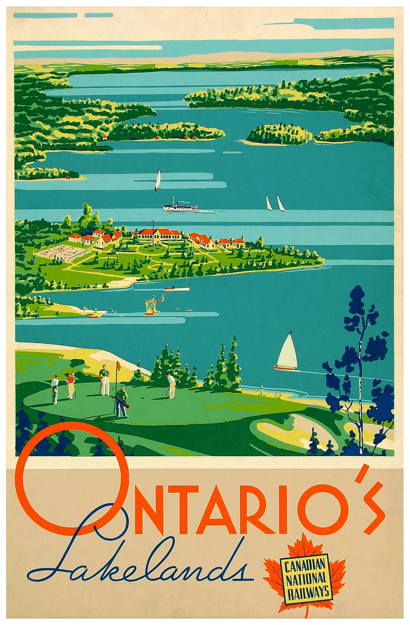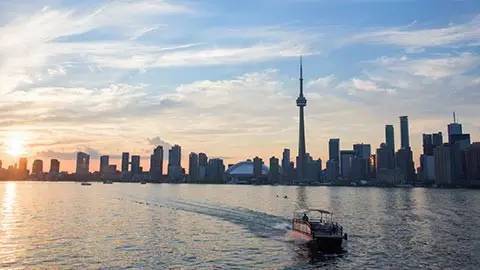After a four-year hiatus, the ISHPSSB is excited to return to an in-person meeting, this time in Toronto, the capital of the Province of Ontario, and the largest city in Canada.
We want to celebrate the opportunity to reconnect in person as well as continue to offer online participation, allowing us to expand on our commitment to inclusivity and equity. We also want to connect the conference with the place and the community. We will do so by organizing public events on topics of high local interest, such as indigenous knowledge and environmental and health histories related to the Great Lakes.
The local committee is a collaboration between the University of Toronto, the University of Western Ontario, and Guelph University. While Western is managing the online side of the meeting, the conference venue will be located on the St. George campus of the University of Toronto, located in the heart of the downtown area.
Venue
 We were excited to return to in-person meeting, but we are also aware of the responsibilities that organizing a conference in these new, post-pandemic, climate-crisis times places on us.
We were excited to return to in-person meeting, but we are also aware of the responsibilities that organizing a conference in these new, post-pandemic, climate-crisis times places on us.
The meeting we put together celebrated the opportunity to reconnect in person as well as continue to offer online participation, allowing us to continue and expand on ISHPSSB’s commitment to inclusivity and equity. We will offer new formats such as digital poster and poster slam sessions, alongside old favourites of organized sessions and individual paper submissions. We were especially keen to promote ISH among social scientists and biologists, and we have excellent ambassadors among the Program Committee members.
As always, we wanted to connect the conference with the place and the community, and did so in several ways. First, themes of the conference reflected some of the topics of high local interest, such as indigenous knowledge, environmental and health histories and related to the Great Lakes, animal cognition, and biotechnology. Second, we opened the conference to the city by turning keynotes into public talks and holding them in collaboration with local organizations and in places accessible to urban population.
The local committee, this time, was a collaboration between three universities, University of Toronto, University of Western Ontario, and Guelph University. While Western managed the online side of the meeting, we were excited to hold the conference in person in one of the most vibrant cities of North America.

Toronto
Toronto, the capital of the Province of Ontario, is the largest Canadian city with a core population of almost three million, and regional population of six million, along Lake Ontario’s northwestern shore. Long before the European settlement (17th century), the region was occupied by various indigenous communities, including the Anishinaabe Nations and the Huron-Wendat People (starting around 1000 BCE). It’s now a dynamic metropolis with soaring skyscrapers dwarfed by the iconic, free-standing CN Tower. The Greater Toronto Area has many green spaces, trails, extensive beaches, as well as cultural and sports facilities. Sightseeing options in Toronto include: the CN Tower (with the tethered EdgeWalk, confirmed by Guinness World Records as the highest altitude edge walk), Lake Ontario cruises, skyline helicopter rides, the Royal Ontario Museum, McMichael Canadian Art Collection (featuring many Indigenous artists), Broadway productions in the Theatre District, the Art Gallery of Ontario, Bata Shoe Museum, the Aga Khan Museum, Ontario Science Centre, Toronto Zoo, Ripley’s Aquarium. Toronto cultural scene is vibrant during the summer months, hosting a range of performing arts festivals. Two internationally renowned theatre festivals, The Shaw (Niagara-on-the-lake) and Stratford Shakespeare festivals are nearby. The city of Niagara Falls is located near Toronto, at the famous waterfalls of the same name, linked with the U.S. by the Rainbow Bridge.
The conference venue was located on the St. George campus of the University of Toronto. The University of Toronto is located in the heart of downtown Toronto, easily accessible to fine dining and entertainment venues. It is close to a host of hotels, in varying price ranges. Some accommodation was available in the University’s student residences.
Mission
The International Society for the History, Philosophy and Social Studies of Biology (ISHPSSB), brings together scholars from diverse disciplines, including the life sciences as well as history, philosophy, and social studies of science. The biennial ISHPSSB summer meetings are known for innovative, transdisciplinary sessions, and for fostering informal, co-operative exchanges and ongoing collaborations.
This conference took place on the St. George campus at the University of Toronto in collaboration with Western University. Primarily it was an in-person meeting with the ability to participate in part of the sessions remotely (virtually) and with opportunities for online networking and socializing.
The Council, Local Organizing, and Program Committees of the ISHPSSB put together an exciting program inspired by socially relevant work on biology and the life sciences, contemporary challenges of climate change and the pandemics, the growing global interests into indigenous ways of knowing, and knowledge and concerns of the local communities living in the Toronto and Ontario area and around the Great Lakes. To do so, we built on the ISHPSSB membership, hosted a keynote lecture and a panel that highlighted these themes, and relied on the strengths of local communities of scholars in HPS, the social studies of science, sciences and museum studies, which allowed us to explore new and established topics through engaging and innovative formats.
Programme
The 2023 ISHPSSB meeting started on Sunday 9 July with a talk and light reception with soft drinks and finger food, and while the scientific part closed Friday lunchtime, various optional excursions continued until the evening of Saturday 15 July. There were plenaries by Soren Brothers (on Climate, Lakes, and Museums: Intersections and Transdisciplinary Opportunities) and Deborah McGregor (Indigenous ontologies of climate change), and a public debate on “Great Lakes: Interdisciplinary Perspectives”.
While the conference website is still up, you can check the programme; failing that you can consult the conference booklet.
Tatjana Buklijas & Eric Desjardins,
on behalf of the Program and the Local Arrangements Committees
